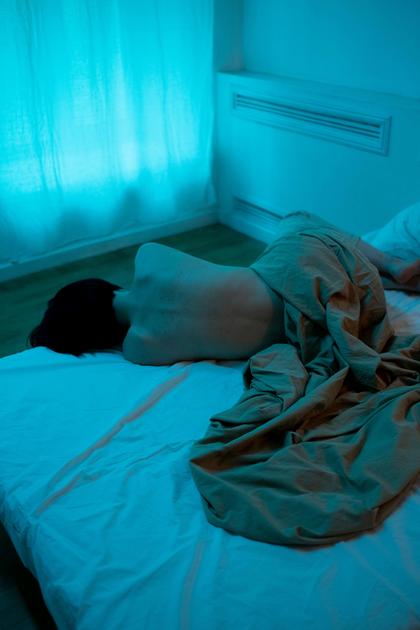Experiencing post-menopause hair loss can be distressing, especially when coupled with stress. Many women over 30 discover that hormonal changes trigger unexpected hair thinning, leaving them feeling vulnerable and frustrated. Have you noticed your hair becoming thinner or more brittle? You’re not alone. Your hair may be affected by various factors, including stress and hormonal imbalances. Let’s delve into this challenging journey together and explore how to reclaim your confidence.
The Calm Reset — 7 Days to Feel Steady, Kind & In Control Again - Only $2.99
Gentle guidance trusted by our community.
Understanding Post-Menopause Hormonal Changes
Menopause is a significant transition in a woman’s life, typically occurring in her late 40s or early 50s. During this time, hormone levels fluctuate dramatically, leading to various physical changes, including post-menopause hair loss. Estrogen and progesterone decline, which affects hair growth cycles. Many women notice their hair thinning after menopause, leaving them feeling frustrated and self-conscious.
The Connection Between Stress and Hair Loss
Stress can exacerbate hair loss during this period. Many women grapple with increased stress levels due to life changes such as caring for aging parents, shifting family dynamics, and personal health concerns. This stress affects the body in numerous ways, disrupting the natural hair growth cycle and leading to telogen effluvium, a condition where hair prematurely enters the shedding phase.
Recognizing the Signs of Hair Thinning
Identifying hair thinning can be daunting. Here are some common signs:
- Increased Hair Shedding: You may notice more strands on your pillow or in your shower drain.
- Thinning Areas: Check for visible scalp through thinning patches.
- Change in Hair Texture: Hair may feel brittle or different in texture.
- Wider Parting: Your usual hair part may appear wider.
If you notice any of these symptoms, it’s essential to pay attention and seek out ways to manage these changes.
Natural Remedies for Post-Menopause Hair Loss
Addressing hair loss can be daunting, but several natural remedies may help:
- Aloe Vera: Known for its soothing properties, aloe can help nourish the scalp and promote hair growth.
- Castor Oil: Rich in fatty acids, castor oil is believed to strengthen hair and promote growth.
- Essential Oils: Oils like rosemary and lavender can stimulate circulation and improve hair health.
The Role of Nutrition in Hair Health
Nutrition plays a vital role in maintaining healthy hair. Focus on the following nutrients:
- Protein: Hair is made of protein, so ensure adequate intake through foods like eggs, beans, and nuts.
- Omega-3 Fatty Acids: Found in fish, these support scalp health.
- Vitamins: Vitamin D and B vitamins are crucial for hair growth. Consider a balanced diet rich in fruits and vegetables.
Finding Effective Stress Management Techniques
Managing stress is essential for overall well-being and can positively impact hair health. Here are some effective techniques:
- Mindfulness and Meditation: Practicing mindfulness can help center your thoughts and reduce stress.
- Regular Exercise: Physical activity releases endorphins and improves mood.
- Connecting with Others: Talking with friends or joining a support group can relieve emotional burdens.
See how many women are solving this without heavy medications
Choosing the Right Hair Care Products
The right products can make a difference in hair health. Look for those that are:
- Sulfate-Free: These shampoos are gentle and won’t strip hair of its natural oils.
- Moisturizing: Products that add moisture can help combat dryness.
- Nourishing: Consider serums and conditioners with natural ingredients that promote hair health.
When to Seek Professional Help for Hair Loss
Sometimes, professional intervention is necessary. If you notice rapid or extensive hair loss, consult a healthcare provider or dermatologist. They can offer guidance and suggest treatments tailored to your needs.
Real Stories: Women Who Overcame Hair Loss
Many women have faced post-menopause hair loss and found effective solutions. Their journeys often involve a combination of natural remedies, lifestyle changes, and emotional support. Hearing their stories can be incredibly inspiring and can remind you that you’re not alone.
Embracing Change: Loving Your Hair Journey
Ultimately, approaching your hair loss journey with compassion is vital. Embracing change involves recognizing your hair’s unique path. Whether you choose to explore new styles, treatments, or simply accept this phase, it’s all part of your personal story. Remember, many women have successfully navigated these changes and found joy in their transformed appearance.
It’s possible to improve all these symptoms and challenges by following a straightforward step-by-step process like many women have already done. Discover these methods and embrace your journey with optimism.
The Calm Reset — 7 Days to Feel Steady, Kind & In Control Again - Only $2.99
Gentle guidance trusted by our community.







